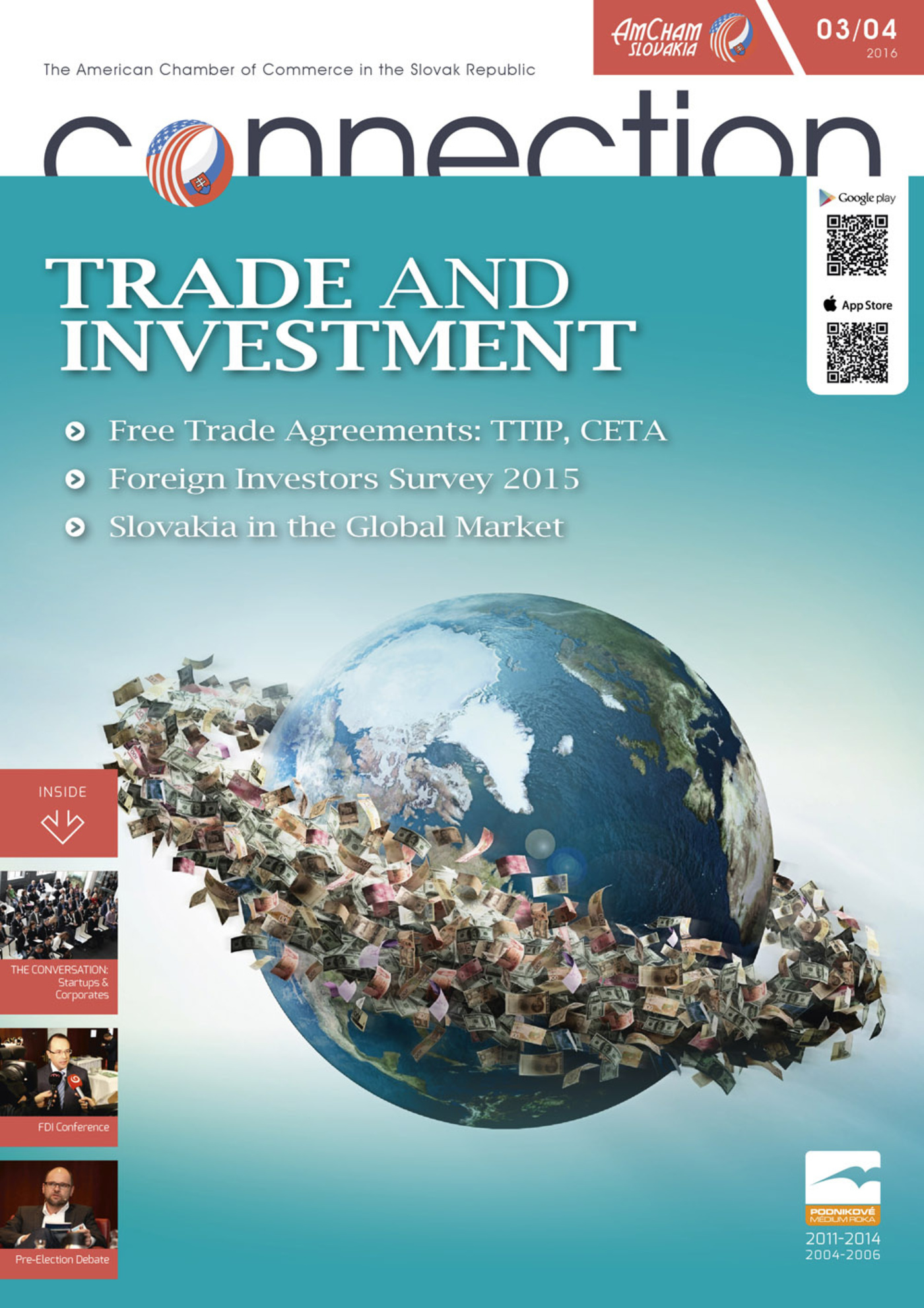In 2014, CETA negotiations were completed. The EU and the Government of Canada are committed to bringing CETA into force as quickly as possible. CETA will encourage increased trade and investment between Slovakia and Canada, creating jobs, prosperity, and growth for Slovak businesses and ordinary citizens.
Moreover, recognizing the extent to which the North American market is integrated, the CETA contains provisions that, in the case of a concluded trade agreement between the EU and US, would allow the two agreements to work together, to the benefit of businesses in Canada, the EU, and the US.
The continued support of the Slovak business community is important in ensuring CETA is ratified as soon as possible. The Agreement is at the centre of the most ambitious trade agenda in Canada’s history and includes reducing tariffs, pursuing smart deregulation, simplifying customs procedures, and upgrading trade-related infrastructure. This agenda will cement Canada as a priority trade and investment partner for Slovak businesses.
Once CETA is in force, all companies operating in Slovakia will have guaranteed preferential access to the entire North American market. This is a market of approximately 500 million consumers and a combined GDP of over €15.4 trillion. In short, CETA will greatly increase the attractiveness of Canada as a gateway to the North American market, and to all markets with which Canada has a free trade agreement.
On the day of entry into force of the agreement, 98% of Canadian and EU tariff lines will be duty free.This means that Slovak businesses will be able to import inputs and raw materials more cheaply, and Slovak retailers will be able to import goods from Canada and sell them on the local market at more competitive prices. This also means that Canadians can get access to more Slovak goods at better prices.
To provide some practical examples, Slovakia exports millions of dollars’ worth of cars and auto parts to Canada every year. When CETA is implemented, tariffs on cars will fall to zero after seven years and tariffs on auto parts will be eliminated immediately. In 2014, Canadians bought close to 110,000 pairs of shoes produced in Slovakia even though the tariffs on footwear add up to 20% to the cost of each pair. All tariffs on footwear will be eliminated immediately under CETA. Canadian homes are filled with furniture manufactured in Slovakia and when the tariffs fall from 15.5% to zero, Slovak tables, chairs and sofas will be even more competitive in Canada.
Doing business in any place in the world involves paperwork including certification processes and meeting standards for new markets. CETA seeks to reduce technical barriers and reduce the costs for business. For example, CETA’s Protocol on the Mutual Acceptance of the Results of Conformity Assessment will reduce costs by allowing recognized bodies in Canada and the EU to accept each other’s test results and product certifications in certain specified sectors.
With so many potential benefits for Slovaks and Slovak businesses, Canada looks forward to Slovakia’s continued support in ensuring the ratification of CETA as soon as possible.
- CETA is the most ambitious trade agreement either party has ever negotiated, setting the gold standard for trade agreements in the 21st century.
- CETA is the first trade agreement the EU has concluded with a G7 partner and will deepen and broaden our already strong trading relationship.
- Canada is one of the most welcoming and profitable places in the world for international business and foreign direct investment. For much of the past decade, the Canadian economy has expanded faster than any other G7 country.
- CETA holds great potential to help Canada and the EU create more opportunities, jobs and prosperity through increased trade and investment.
- A 2008 Canada-EU joint study shows that the EU could expect a 20-percent boost in bilateral trade and a €11.6 billion annual increase to the EU economy.
Kathy Bunka, Chargé d’affaires, The Office of the Embassy of Canada



Follow us